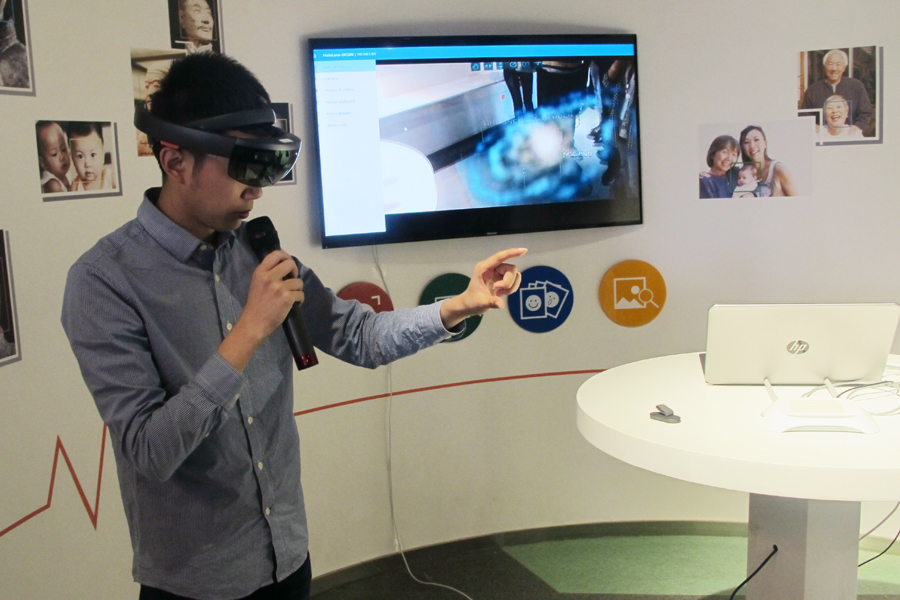Xi'an aims to build national science center


Provincial capital hopes to spearhead innovation in northwestern region
Xi'an, home to the underground army of Terracotta Warriors, is now determined to sharpen its tech edge by constructing a national science center, Li Mingyuan, the city's mayor, said.
The capital of Shaanxi province hopes to construct a comprehensive center to drive innovation in China's northwestern region, promote technological and economic growth and better support the country's objective of high-quality development, said Li, who is also a deputy to the National People's Congress, the country's top legislature.
"The center-which aims to help solve major scientific problems and break bottlenecks in cutting-edge technologies-will play an important role in improving China's global competitiveness in the sci-tech sector," he said.
The 13th Five-Year Plan (2016-20) for the construction of major national science and technology infrastructure, which was released by the National Development and Reform Commission in 2017, called for the building of several comprehensive national science centers by 2020 in areas that have clusters of key science and technology infrastructure.
Such centers have been approved in Beijing's Huairou district, as well as in Hefei, Anhui province, Shanghai's Zhangjiang Hi-Tech Park, and in Shenzhen, Guangdong province.
There is no plan for one in Northwest China as yet.
Xi'an, with its advantages in sci-tech talent, key laboratories, scientific institutes and advanced industries, such as electronic information, high-end equipment manufacturing, biomedicine and new energy, and its role as a major city in the Northwest, is prepared to put scientific development in the region into the fast lane, Li said.
Last year, the city's GDP reached over 1 trillion yuan ($154 billion) for the first time, official statistics showed. The number of new high-tech companies reached 1,500 last year, with the output value of high-tech industry surging 23.4 percent.
With advantages in scientific research strength, industry foundations and large-scale scientific facilities, "Xi'an shows great potential," Li said.
For instance, the National Time Service Center of the Chinese Academy of Sciences, established in 1966 in Xi'an, is the only professional research institute in China that specializes in fundamental research and applications in the fields of time and frequency.
It generates, maintains and transmits the national standard for Beijing time and has the only platform for experiments in space-ground integrated satellite navigation and time service in China, according to its website.
Also, construction of the National Translational Science Center for Molecular Medicine, with an area of about 4 hectares, began in Xi'an last year, aiming to lead the nation in research on the prevention, diagnosis and treatment of tumors and cardiovascular disease.
The city is also developing a new pilot zone for artificial intelligence, as well as China's first "hard technology" demonstration area, Li said.
"Hard technology" means core technologies that require long-term research and development, including optoelectronic chips, aerospace technology, biotechnology, information technology, new materials and smart manufacturing.
"Xi'an will prioritize such bottleneck core technologies, striving to serve as a 'national team' for scientific innovation," Li said.
The city has 83 colleges with about 1.3 million undergraduate students, 60 academicians of the Chinese Academy of Sciences or Chinese Academy of Engineering, 23 national key laboratories and about 460 scientific research institutions.
Xi'an Jiaotong University and Northwestern Polytechnical University, with advantages in the fields of mechanical engineering, materials science, power engineering, astronautics and marine technology, train many young engineers every year.
The national university science and technology parks of the two universities and the Xi'an Hi-Tech Industries Development Zone have been approved by the State Council, China's Cabinet, as demonstration bases for innovation and entrepreneurship.
Xi'an's integrated circuit industry is listed as a key national industry, and its aviation industry was one of the country's first advanced manufacturing industries. Its electronic information, automotive and aerospace industries each have annual output valued at more than 100 billion yuan.
"As technological innovation is an important driving force for high-quality development, we suggest building a national science center in Xi'an to attract more major sci-tech programs to the city, build more national industrial innovation centers and expand support for universities and scientific institutions in western areas," Li said.
"It will help improve the innovation-driven development capabilities of Xi'an and the whole northwestern region, serving the high-quality development goals of the country."
- A glimpse of Xi's global insights through maxims quoted in 2024
- China's 'Ice City' cracks down on ticket scalping in winter tourism
- Iron stick yams revitalize Wenxian county
- Party chief of Guilin under investigation
- Two radio telescopes put into use to support deep space exploration
- Joint action transforms Mekong region




































